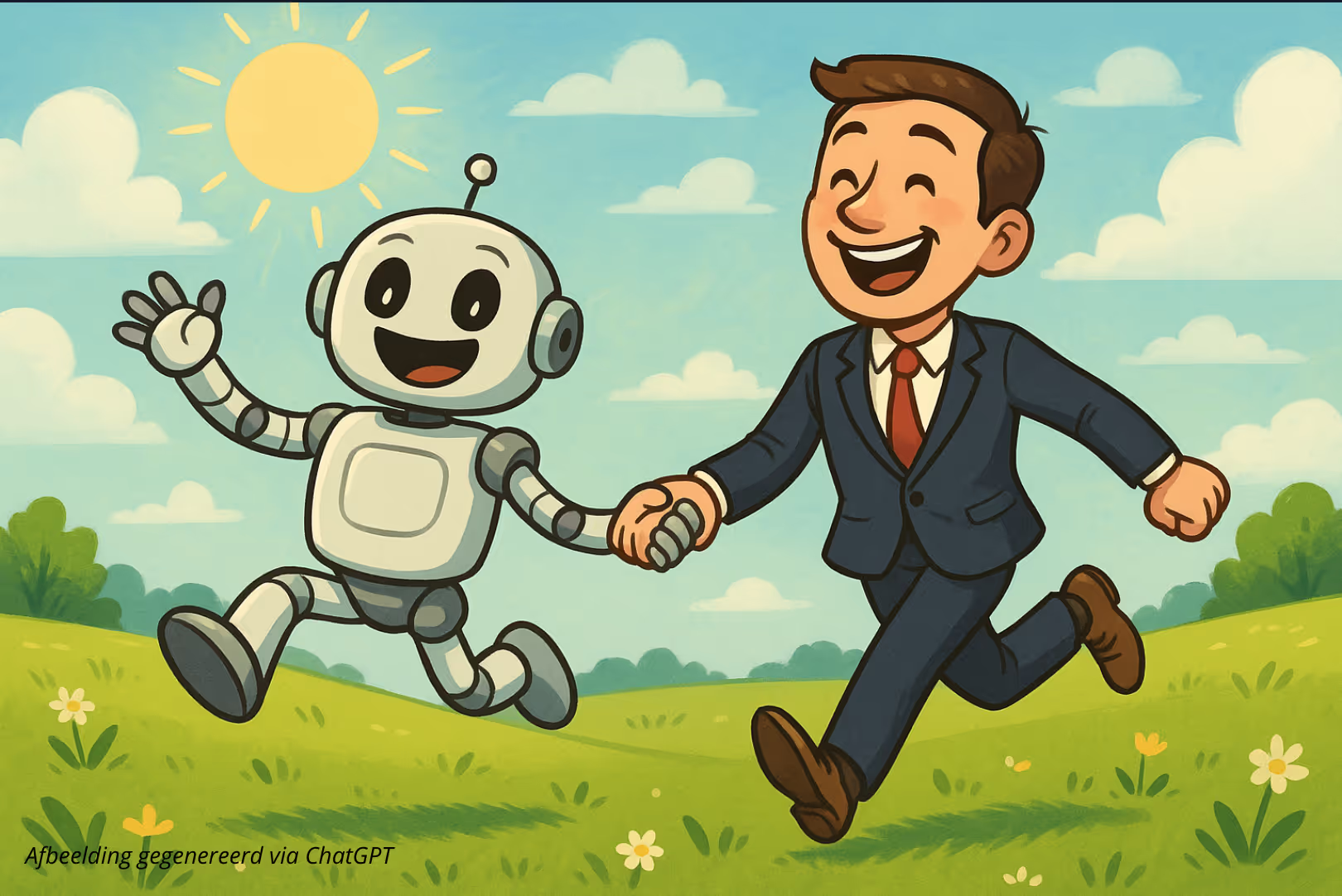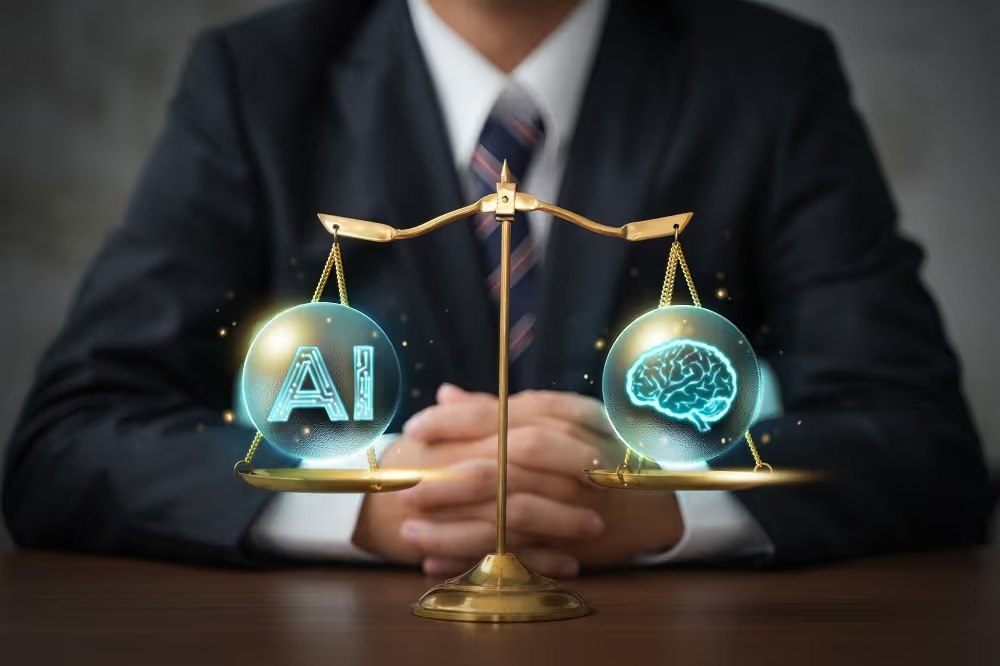
What Does AI Mean for My Job? Less Work, or More Human?
The rise of artificial intelligence raises many questions: will AI replace jobs, or actually make work more human? In this blog, we explore what AI really means for our work and our role.

Reading time: 5 minutes
What Does AI Mean for My Job?
The rise of artificial intelligence (AI) raises many questions, especially in the workplace. Will AI take over my job? Will I soon have to do something completely different? And what if I’m not ready for that?
These are logical questions. And at Lumans, where we help organizations deal with AI, we notice these topics coming up more and more in conversations with companies and professionals. In this blog, we look at the reality with a clear head: yes, AI will change a lot of work. But no, that’s not a reason to panic.
Concerns Are Real, but Not the Whole Story
Recent research in the United Kingdom shows that more than half of workers are concerned about the impact of AI on their jobs. Young professionals between 25 and 34 years old, in particular, worry about potential changes to their work or contract conditions.
And yet, interestingly, people also want more say in how AI is used within their organizations. That’s encouraging: it means people are not passively watching from the sidelines but want to actively contribute. In our view, that is exactly the right attitude.
AI Replaces Tasks, Not People
In a recent interview, former Google X executive Mo Gawdat put it very clearly: AI will replace many tasks currently performed by people, especially at the knowledge level. Think of scheduling meetings, preparing reports, or drafting proposals. But that does not automatically mean that jobs will disappear.
What changes is the content of those jobs. Work becomes more human. We gain room for tasks that are harder to automate: care, creativity, human connection, moral judgment, strategy.
A concrete example: a sales executive who conducts daily conversations and normally takes notes and writes meeting minutes. Thanks to AI tools, the conversation can be automatically transcribed, and within seconds, a smart assistant generates a first draft of the minutes. This leaves more time for the human side of the job: listening, connecting, and building relationships.
What Does This Ask of Us?
We are at a point where both companies and employees must reflect on their role in an AI-driven society. It helps to honestly assess which tasks in your work process are likely to be automated – and which will gain more value.
We recommend everyone to keep learning actively:
- What can AI already do?
- What does it do well – and where are the limits?
- Which skills are especially important now?
It’s not about changing everything overnight. It’s about adapting, learning, and looking ahead.
A More Human Future
AI gives us the chance to reshape work. Not to make people redundant, but to allow people to be more human. Spending less time on spreadsheets or planning. More room for collaboration, creativity, care, and meaning.
Of course, this requires adjustment. And maybe even some courage. But it also opens doors: to new jobs, new forms of work, and new ways of creating value.
Ready for the Next Step?
At Lumans, we help companies and professionals make AI understandable and practical.
👉 Schedule a free consultation or explore our services


